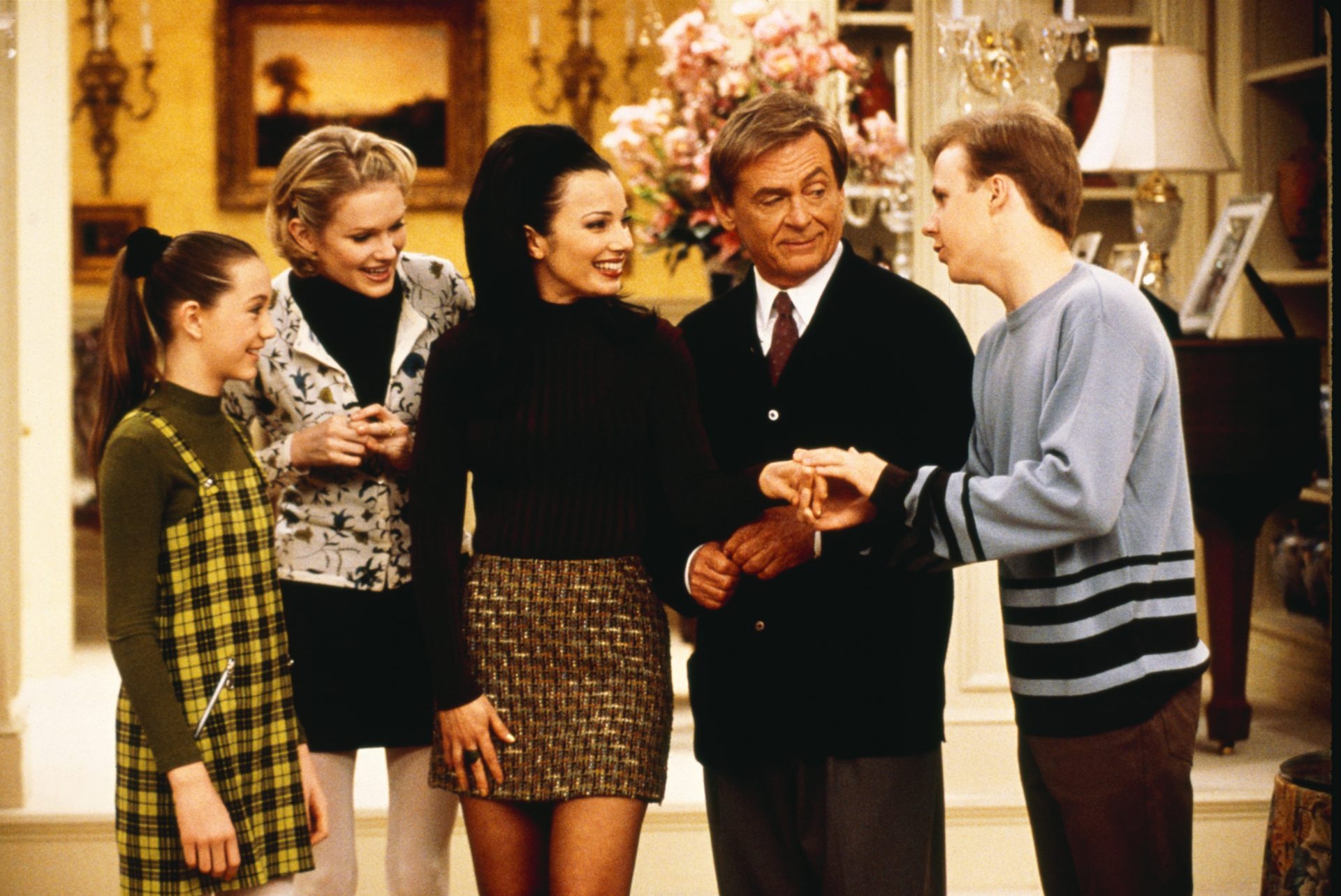Some television characters leap off the screen and live rent-free in our minds. Fran Drescher created one of those rare icons—then used that same fearlessly original spirit to champion women’s health on a national stage. Celebrated this month among “reel women” who reshaped film and TV, Drescher is a creative force in the tradition of Lucille Ball and Mary Tyler Moore, blending comedic brilliance with tenacious self-determination. Her journey from sitcom standout to health advocate is a study in what happens when you seize the moment and never let go.
The Spark Behind a Sitcom Icon
For a generation of viewers, Fran Fine from The Nanny wasn’t just a character—she was the babysitter they wished would show up at their door. Audiences fell for her audacious fashion sense, Queens-bred wit, and heart-of-gold honesty. The resonant detail: Drescher’s charm onscreen wasn’t an act. In person she’s magnetic, quick with empathy and answers, and yes, that unmistakable accent and signature laugh are the real deal.
Drescher’s body of work spans acclaimed acting, producing, a New York Times bestselling author credit, and a powerful second act as a women’s health advocate. None of it arrived easily or automatically. Her career—like her activism—was built through relentless effort, self-belief, and a promise to herself that she would never settle for less than what her talent could carry.

The Teen Audition That Rewired Her Mindset
Drescher traces the origins of her go-for-broke approach to a single moment as a teenager. She had traveled two buses and a train from her Queens neighborhood into Manhattan for an audition—and walked out feeling like she had held back. The sting of regret hit harder than any potential rejection. On the ride home she decided she would never again sabotage herself. Her private mantra became clear: seize the day, do the work, and leave it all in the room.
That decision turned adolescent embarrassment into a lifelong operating system. Whenever opportunity appeared, she resolved to meet it without self-consciousness, to choose action over hesitation.
Refusing the Sidekick Role—and Rewriting the Script
Years later, that philosophy would be stress-tested. Drescher was a steady working actor—commercials, pilots, guest spots—but often slotted as the quirky neighbor, the “third banana.” She knew she could carry a show yet couldn’t get the chance. After one particularly dispiriting pilot, she made a promise to herself: if she couldn’t participate in her career in a meaningful way—shaping the work, steering her destiny—she would step back rather than be trapped in something she didn’t believe in.
When the sitcom Princesses, in which she co-starred with Twiggy and Julie Hagerty, was canceled, she took a breather. A friend invited her to the south of France. It was an intimidating idea; she wasn’t yet comfortable traveling alone. But she recognized her fears as limitations and decided to push past them. Pilot season was over, she reasoned. Why not go?
A First-Class Twist of Fate at 30,000 Feet
Pooling old TWA miles, she scraped together just enough for a first-class seat to Europe. Fate did the rest. Drescher found herself next to Jeff Sagansky, then President of CBS Entertainment. She ducked into the lavatory to freshen up—chanting “carpe diem”—and came out determined to talk. He was a captive audience and, more importantly, she knew she had something to say.
Sagansky was intrigued enough to suggest finding her a part in a developing show. Drescher, trusting her instincts, countered that her own idea would be a better fit. He granted her a meeting with CBS Development when she returned to Los Angeles—if she could bring a compelling concept.
The London Stroll That Gave Birth to Fran Fine
France proved less restful than planned—toddler chaos cut the trip short. Drescher detoured to London to visit Twiggy and found herself exploring the city with Twiggy’s well-mannered school-age daughter. When the girl complained about new shoes, Drescher reflexively offered a bit of street-smart wisdom: don’t break the shoes, break them in. In that cross-Atlantic mash-up—Queens pragmatism meets British polish—she instantly saw the comedic spark.
She called her then-husband, Peter Marc Jacobson, and floated the hook: a modern spin on The Sound of Music, except when the door opens it isn’t Julie Andrews—it’s Fran from Queens. He didn’t hesitate. That was the pitch. CBS agreed. The result was The Nanny, a six-season hit that achieved global syndication and installed Fran Fine among the most memorable characters in television history.
When Real Life Took a Turn—and a Movement Emerged
Success didn’t insulate Drescher from life’s most sobering plot twist. In 2000, after two years of misdiagnoses, she learned she had uterine cancer and underwent a radical hysterectomy. The experience spotlighted a systemwide problem: too many patients are misdiagnosed and treated late, often with devastating consequences. Drescher leaned on the same resilience that had powered her career, turning fear into focus.
She chronicled the journey in her New York Times bestseller, Cancer Schmancer. The book sparked something larger: a national nonprofit of the same name dedicated to shifting the cancer conversation from late-stage diagnosis to prevention, early detection, and root-cause awareness.
From Memoir to Mission: The Cancer Schmancer Approach
Through Cancer Schmancer, Drescher advocates that prevention begins at home and in everyday choices. She argues that too much of conventional care is reductionist—fixing what’s broken without examining what caused the breakdown in the first place. In her view, environmental triggers contribute to the overwhelming majority of cancers, so any truly modern strategy must ask: what’s causing this, and how do we remove the source?
That philosophy translates into practical tools: programs that help families spot cancer-causing toxins in household products, education to recognize early warning signs, and initiatives that empower patients to advocate for timely, thorough diagnostics. The organization doesn’t stop at personal behavior change—it also drives policy work, pressing legislators in Washington to support cleaner, safer standards.
Community, Courage, and Turning Pain into Purpose
Drescher is frank about the emotional terrain cancer patients navigate. It’s a club no one chooses, she often notes, but once you’re in, you can still choose how you play the hand. By building community—whether at educational events or even on a spirited harbor cruise in New York—Cancer Schmancer fosters solidarity, resilience, and forward motion. The aim is simple and profound: help people transform fear into agency and grief into meaningful action.
An Enduring Legacy of Bold Choices
From the moment she vowed as a teenager to never leave an audition with regrets, Fran Drescher has lived like she means it. That resolve created a sitcom classic and, later, a blueprint for life after a terrifying diagnosis. She brought laughter to millions, then leveraged her voice to help families guard their health. It’s a throughline of courage, creativity, and candor—delivered with her inimitable sass and generosity of spirit.
Drescher often reflects that the toughest chapters sometimes hide the greatest gifts. She wouldn’t wish her ordeal on anyone, but she’s grateful for the clarity it delivered: use your platform, help others, and keep asking better questions about what makes us ill—and what can keep us well.
Why This Matters
Fran Drescher’s story is more than entertainment lore—it’s a reminder that personal agency can change industries and save lives. For creators, her path underscores the power of trusting your voice, advocating for your vision, and saying yes to serendipity when it appears at 30,000 feet. For patients and families, her advocacy reframes the cancer journey around prevention and early action, inviting all of us to scrutinize what we bring into our homes, our bodies, and our communities.
Call it the Fran Fine effect: courageously show up as yourself, ask for the meeting, pitch the idea, and when life throws something unthinkable your way, channel that same boldness into making the world safer and healthier. That’s a legacy worth keeping in the spotlight.
